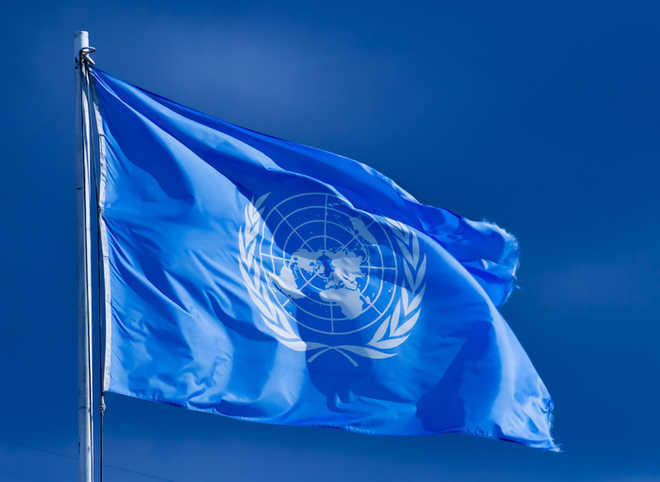
India on Tuesday spoke about the “grave humanitarian crisis” unfolding in Afghanistan and hoped that the situation does not pose a challenge to its neighbours nor is its territory used by terrorist groups such as Lashkar-e-Toiba (LeT) and Jaish-e-Mohammed (JeM) to threaten any country. – File photo
New Delhi, August 31
India on Tuesday spoke about the “grave humanitarian crisis” unfolding in Afghanistan and hoped that the situation does not pose a challenge to its neighbours nor is its territory used by terrorist groups such as Lashkar-e-Toiba (LeT) and Jaish-e-Mohammed (JeM) to threaten any country. Speaking at the UN Human Rights Council’s (UNHRC) special session on “Serious human rights concerns in Afghanistan”, Indian diplomat Indra Mani Pandey called upon all parties concerned to allow unhindered access to international assistance because “stability in Afghanistan is linked to the peace and security of the region”.
UNHRC chief Michelle Bachelet sought a mechanism to closely monitor Taliban’s actions following credible reports of serious violations by the insurgent group, including summary executions of civilians and Afghan security forces. A fundamental “red line” will be the Taliban’s treatment of women and girls and freedom of self-expression and employment, she added.
The special session
was convened following a joint request by Pakistan, Organisation of Islamic Cooperation (OIC) and Afghanistan. Unsurprisingly, the draft resolution penned by Pakistan is mildly worded, doesn’t name the Taliban and doesn’t call for a fact-finding mission. As for monitoring, it has suggested a report after nine months.
